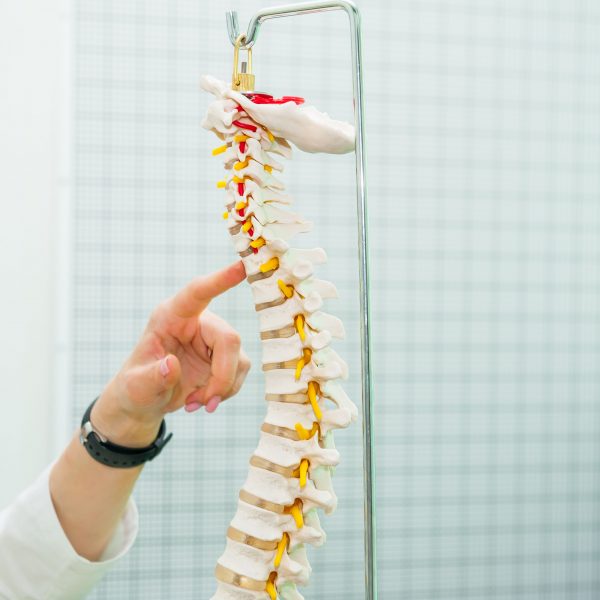- Mindfulness meditation helps you stay present, reduce stress, and improve emotional regulation, contributing significantly to mental well-being.
- Setting boundaries safeguards your mental health, protecting your time, energy, and emotional well-being from being overstretched.
- Prioritizing self-care, including maintaining a healthy lifestyle, replenishes your physical, emotional, and mental well-being.
- Practicing relaxation techniques such as box breathing, 4-7-8 breathing, and pursed-lip breathing can help manage stress and anxiety.
- Seeking professional help when needed is a strong step toward addressing persistent or worsening mental health issues.
In the hustle and bustle of modern life, it’s easy to neglect your mental health. The demands of work, family, and personal obligations can leave you feeling overwhelmed and stressed. However, prioritizing your mental health is essential for your overall well-being. This guide will provide five valuable tips to help you prioritize and maintain your mental health. These strategies can build resilience, reduce stress, and create a stronger foundation for a happier and healthier life.
1. Practice Mindfulness Meditation
Mindfulness meditation is a powerful tool that can help you stay present in the moment and reduce stress. It involves paying full attention to your thoughts, emotions, and sensations without judgment. By practicing mindfulness regularly, you can improve your emotional regulation, reduce anxiety, and enhance your overall sense of well-being.
Begin by finding a quiet and comfortable space to sit or lie down. Close your eyes and focus your attention on your breath. Breathe slowly and deeply, counting to four, and then exhale for a count of four. As you breathe, acknowledge any thoughts or feelings that arise without trying to change them. Simply observe them non-judgmentally, like clouds passing through the sky. You can start with just a few minutes daily and gradually increase the duration as you become more comfortable with the practice. Mindfulness meditation can be a powerful way to center yourself and alleviate stress in your daily life.
2. Set Boundaries

Setting boundaries is crucial for safeguarding your mental health. Without clear boundaries, you may find yourself overcommitted and emotionally drained. Learning to say “no” when necessary and establishing limits in your personal and professional life is essential. Boundaries help protect your time, energy, and emotional well-being.
Start by identifying your priorities and values. What matters most to you? What are your limits in various areas of your life, such as work, relationships, and social activities? Communicate these boundaries clearly and assertively to others. Remember that setting boundaries is not selfish; it’s an act of self-care. It allows you to allocate your resources effectively and ensures you have the time and energy for the things that truly matter to you.
3. Prioritize Self-Care
Self-care is more than just bubble baths and spa days. It involves purposefully fostering your physical, emotional, and mental wellness. Prioritizing self-care can help you recharge and prevent burnout. Consider activities that bring you joy and relaxation, whether reading a book, walking in nature, or spending quality time with loved ones.
One essential aspect of self-care is maintaining a healthy lifestyle. This includes eating nutritious foods, regular exercise, and enough sleep. Physical and mental health are closely linked, so caring for your body is fundamental to maintaining good mental health.
4. Practice Relaxing Breathing Techniques
Breathing techniques are a valuable tool for managing stress and anxiety. Deep, intentional breathing can help calm your nervous system, reduce tension, and clear your mind.
Here are the four types of relaxing breathing techniques that you can practice:
Qigong Breathing
Qigong breathing is an ancient Chinese practice that combines slow, deep diaphragmatic breathing with gentle movements. It helps to increase energy flow in the body and can be used as a form of meditation. Utilizing professional qigong classes are available online for those wishing to learn more about this technique. Professionals will teach you how to observe your breath, relax your body, and focus on each movement.
Box Breathing
Box breathing, also known as square breathing, is a simple technique that can be done anywhere. Begin by exhaling all the air from your lungs. Then, inhale slowly through your nose for a count of four. Hold your breath for another count of four. Exhale through your mouth for four, then hold your breath again for the final count of four. This completes one “box”. Repeat this process for a few minutes until you feel calmer and more centered.
4-7-8 Breathing
The 4-7-8 breathing technique, commonly referred to as the “relaxing breath,” encompasses inhaling for a duration of 4 seconds, holding the breath for 7 seconds, and exhaling for 8 seconds. This method helps reduce anxiety, helps individuals get to sleep, and can even manage cravings. Regular practice of the 4-7-8 technique can enhance internal focus and relaxation.
Pursed Lip Breathing
Pursed lip breathing can be particularly beneficial for those with respiratory conditions but can also aid in general relaxation. Begin by gently releasing tension in your neck and shoulder muscles. Take a slow, deep breath in through your nostrils for a count of two. Form your lips into a puckered shape as if preparing to whistle. Then, exhale gently and gradually through your pursed lips, allowing the air to flow out for a count of four.
5. Seek Professional Help When Needed

Sometimes, despite your best efforts, you may find that your mental health struggles persist or worsen. In such cases, seeking professional help is crucial to healing and recovery. Mental health professionals, such as therapists, counselors, and psychiatrists, can provide the support and guidance you need to address your challenges effectively.
In Summary
Prioritizing your mental health is a lifelong journey that requires attention and care. By practicing mindfulness meditation, setting boundaries, prioritizing self-care, using relaxing breathing techniques, and seeking professional help, you can take proactive steps to maintain and improve your mental well-being. Remember that your mental health matters, and investing in it is one of the most valuable things you can do for yourself. Embrace these tips as a foundation for a happier, healthier, and more fulfilling life.






